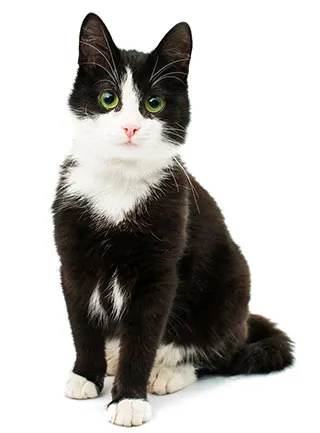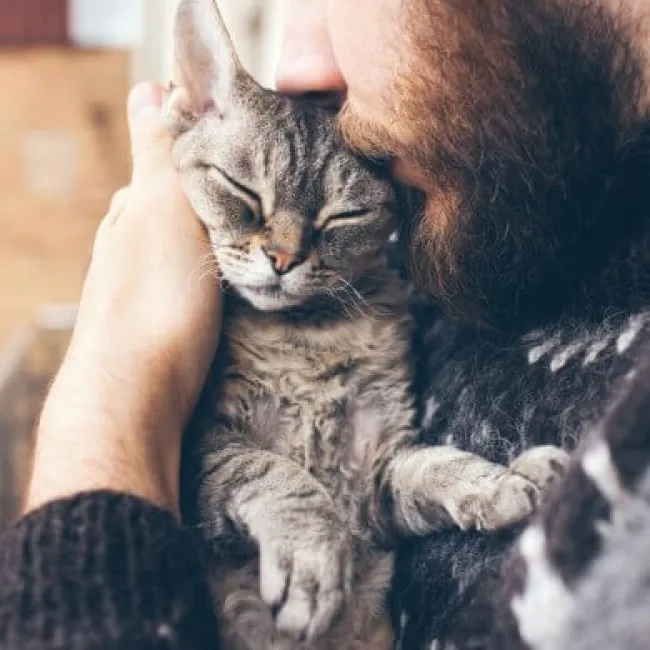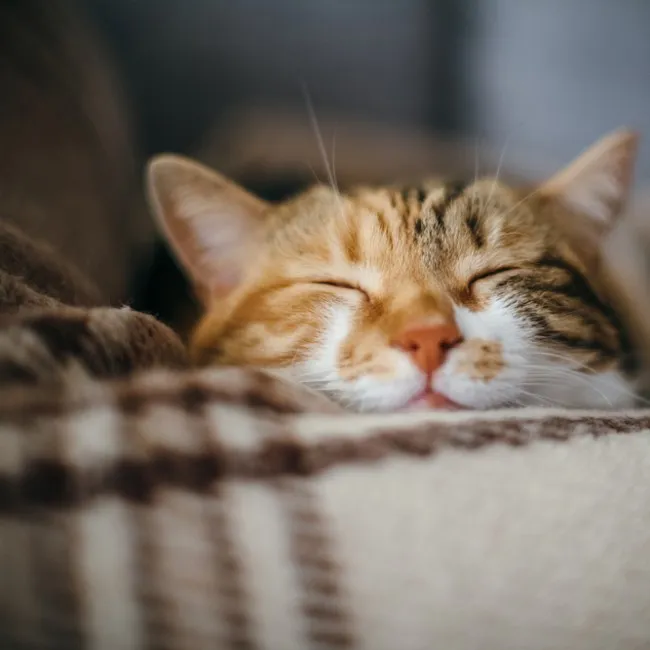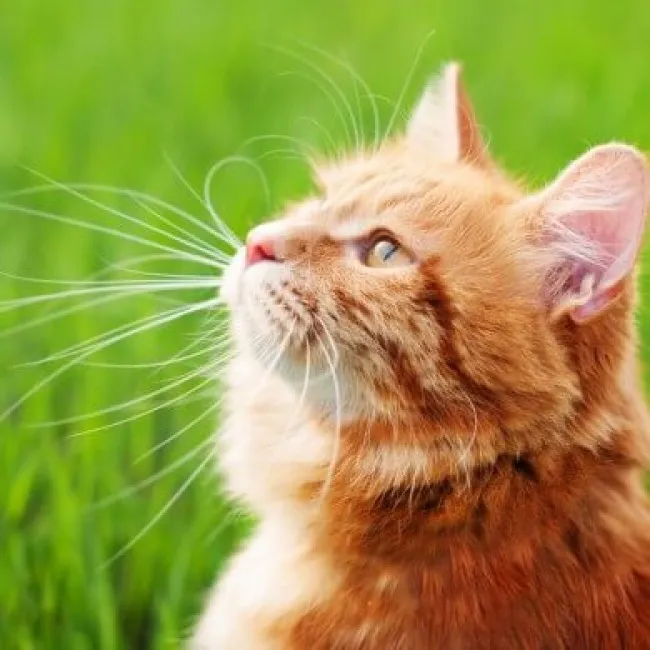What Are Cats Allergic To?
Many people are allergic to cats and their fur (also known as cat dander), but did you know your cat can also have allergies of their own? Just like how us humans can have an allergy to certain food, products or plants, so can our cats, and it can cause them just as many issues and symptoms as it causes us! But how do you know if your cat has an allergy? And what are the most common things they are allergic to?
Many people are allergic to cats and their fur (also known as cat dander), but did you know your cat can also have allergies of their own? Just like how us humans can have an allergy to certain food, products or plants, so can our cats, and it can cause them just as many issues and symptoms as it causes us! But how do you know if your cat has an allergy? And what are the most common things they are allergic to?
What are cat allergies?

Firstly, you need to understand what cat allergies are. Allergies, in any animal, are a hypersensitive response from the immune system to something that has come into contact with the body. This results in reactions such as itchy skin, vomiting and watery eyes as it is the body’s immune system trying to fight against the substance. An allergic response is different to when the body is fighting off something like bacteria or a virus though, as the substance should normally be harmless (such as pollen), but the body instead sees it as a threat. This is why one cat’s allergy may be different from another, and why some may seem to have none at all! Whilst in most cases, the immune system's response is simply annoying or irritating (such as itchy skin), there are rare occasions where the reaction is critical and causes anaphylaxis (a severe allergic reaction), so is something that should be taken seriously.
Types of allergies in cats
Cat allergies can generally be split into three categories - food, skin and environmental. Allergies usually fall into one of these three categories as each one has similar symptoms and treatments. There are, however, some cases where a more rare allergy might cross over categories or have unusual symptoms, but they are a good basis to go by when defining the type of allergy your cat may have, as well as seeking treatment or help.
Common cat allergy symptoms
Now you know what a cat allergy is and the different types, what are the signs of cat allergies? Whilst each cat is different, and so, therefore, their specific allergy and symptoms may vary, there are some typical signs to look out for. A cat having an allergic reaction may have one or more of these symptoms and to varying extents, but if you notice one of these signs and can rule out any other medical issue, you should consider that your cat may potentially have an allergy to something.
- Coughing
- Sneezing
- Itching
- Scratching
- Redness
- Rash
- Watery Eyes
- Vomiting
- Diarrhoea
- Swollen pores
- Ear infections
- Snoring (from an inflamed throat)

What are cats allergic to?
While there are many substances a cat can potentially be allergic to, here are the most common:
1. Foods
Food allergies are responsible for around 10% of all allergies in cats, and is the reason for around 57% of the itching! Just like with us humans, the usual offenders for cat food allergies include gluten, dairy, soy, corn, beef and lamb. You’ll know if your cat is allergic to a specific food if after eating they either vomit, have diarrhoea or start itching. You can diagnose a food allergy by either visiting the vets or, alternatively, testing at home by process of elimination.
2. Fleas
An allergy to fleas, or rather flea bites, are one of the most common allergies in cats. If a cat is allergic to flea bites, it can make the area red, swollen and very itchy. As a result, itching, biting, licking or scratching at the skin is one of the biggest telltale signs of an allergic reaction to a flea bite. The best way to deal with a flea allergy is to prevent your cat from being in contact with the parasite. This includes avoiding areas they are found as well as using a flea prevention product.
3. Pollen
One of the more difficult allergies to deal with, a pollen allergy in cats can be caused by trees, plants and grass. As a result, this allergy can be pretty hard to avoid and causes a reaction on cat’s skin. Fortunately, though, a pollen allergy is usually seasonal and becomes worse in spring and summer months, then calms down during autumn and winter. Unlike with many other allergens where you can see the source, pollen is hard to identify so is best visiting the vets.
4. Mould and dust
These sort of allergies can have very similar symptoms to pollen, however, will be year-round instead of seasonal. Fortunately, these are both allergens that are straightforward to remove and the best way to deal with these allergies is to make sure your house, and especially the cat’s living environment, is kept clean and tidy. Mould can have health implications for both humans and cats alike, so it can help both their wellbeing and allergies to remove any.
5. Perfumes & cleaning products
Some cats can be very sensitive to perfumes and scents added to products such as cleaning products, cat litters and air fresheners. A sensitivity can cause either sneezing if it is in the air or scratching if it is something they come into contact with. The best way to help your cat with these allergies is to avoid them where possible. This may mean either completely removing perfumed items from the house or switching to hypoallergic or unscented products instead.
6. Medications
Whilst any allergies can be serious if it causes a severe reaction, an allergy to a certain medication can be very problematic. This is not only because it can cause symptoms such as fever, hives, itching, vomiting and hair loss (in the case of a topical product), but also because they would be using the medication to help improve their health, not make it worse! If you think your cat has an allergy to a certain medication, take them to the vets as soon as possible.
What should I do if my cat has an allergic reaction?
If you think your cat is having an allergic reaction, whether it be food, skin or environmental, you can take them to the vet to determine the allergy. For certain allergies, they can perform a blood test which can help determine the allergen. There are also some steps you can take at home to establish if your cat does, indeed, have an allergy. This involves a process of elimination where you slowly introduce potential allergens to your cat and carefully monitor their reaction.
Once you have determined that they do have an allergy, and not a related medical issue, you can try helping them deal with it. The best way would be to remove the source of the allergen. This works in the case of foods or cleaning products, but what about something that is out of your control, such as pollen? To help with the symptoms and signs of cat allergies that can’t be avoided, you can try a specific cat allergy treatment, or a boosting their internal immunity through nutrition.
Cat allergy supplements

A natural supplement is an ideal way to help your cat deal with their allergies; they work by using natural ingredients to help reinforce your cat’s immune system, meaning their body can deal with the allergen better, resulting in less of a reaction. Whilst they cannot necessarily ‘cure’ an allergy, as this can’t be done, it can help with the symptoms and make them a lot easier to deal with. This is especially useful for year round or seasonal allergies, and generally any that your cat can quite often come into contact with.
Some of the best ingredients to look out for in a natural cat allergy supplement includes vitamins and minerals. Both vitamins A, B, C and D are excellent nutrients for allergies as they are said to contribute to the immune system, as are minerals such as Iron, Selenium and Zinc. Essential fatty acids, especially Omega 3, are also said to great for supporting the immune system and helping the body deal with allergies. As a result, you have plenty of choice for helping your cat’s allergies; you can choose a multivitamin or mineral supplement or one that is rich in vitamins as well as omega 3 such as flaxseed oil for cats. Overall, just make sure you choose a supplement with a potent strength and do all you can to avoid the allergen, and then your cat can stay feeling happy and healthy and not having to worry about their allergies!







